Gerald Fleming receives EMS Silver Medal
Outstanding contribution to enhancing communication
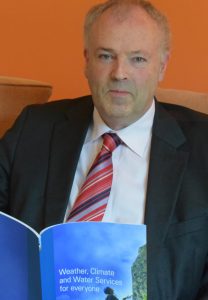 The European Meteorological Society has chosen Gerald Fleming as Laureate of the EMS Silver Medal 2019. This award recognises his outstanding contribution to the communication of meteorological information through enhancing the public understanding of meteorological services and issues, and strengthening and fostering expertise in broadcast meteorology.
The European Meteorological Society has chosen Gerald Fleming as Laureate of the EMS Silver Medal 2019. This award recognises his outstanding contribution to the communication of meteorological information through enhancing the public understanding of meteorological services and issues, and strengthening and fostering expertise in broadcast meteorology.
The Silver Medal ceremony, which includes a Silver Medal Lecture by the Laureate, will be held on Monday, 9 September 2019, during the Annual Meeting of the EMS in Copenhagen, Denmark.
Silver Medal Lecture: “From Cardboard Charts to Climate Change – Four Decades of Challenges in Communicating Weather Information“.
Gerald Fleming said “When I heard that I was to receive the EMS Silver Medal, my mind immediately went to that pantheon of meteorological “greats” who are previous recipients. To be considered worthy to stand beside people like Julia Slingo, Peter Lynch, David Burridge and Tillmann Mohr is a tremendous honour, and I am deeply grateful to the EMS Council for this recognition of my work“.
Gerald Fleming
Gerald Fleming has played a key role in helping to enhance effective communication between the providers of meteorological services and the broad range of users of those services. He is recognised throughout Europe, and beyond, as a leader in meteorological communication, and has made major contributions to the development and recognition of public weather services (PWS) as an important area of work for National Meteorological and Hydrological Services (NMHSs).
As a co-founder of the International Association of Broadcast Meteorologists (IABM) and member of the EMS Media and Communications Team, he has been a strong advocate of establishing best practices in weather broadcasting and in enhancing the public understanding of meteorological services and issues. Working closely with Radio Telefís Éireann (RTÉ) for over three decades, he recognised the role of weather broadcasters as effective agents in informing citizens and public authorities on how to best use weather forecasts, and subsequently used this experience to help place Met Éireann at the heart of Emergency Response activities in Ireland. He is dedicated to the principle of recognising the impact of weather, and the need to help the public and decision makers anticipate and deal with those impacts, and has tirelessly promoted the approach: “Moving from what the weather will be to what the weather will do”.
As long-time chair of the WMO Open Programme Area Group (OPAG) for PWS, he has been a driving force in developing competency standards for delivering PWS, and developing policy guidance for WMO and NMHSs in PWS matters. His contributions have benefitted many NMHSs, including those in the developing world. His role in highlighting the importance of serving society through developing and delivering meteorological and related services cannot be understated.
As well as leading the OPAG of PWS, he has contributed to many WMO initiatives that have been of benefit to the development of meteorology in Europe and beyond, including:
- Membership of the Management Group of the Commission for Basic Systems (CBS).
- Chairing the Expert Team on Media Issues;
- Membership of the Expert Team on Education and Outreach and the WMO Forum on Social and Economic Applications of Meteorological Services;
- Delivering training for WMO-sponsored courses on weather broadcasting and weather service delivery;
- Authoring two chapters of “Valuing Weather and Climate – Economic Assessment of Meteorological and Climate Services” published under the auspices of the World Bank, WMO and Climate Services Partnership;
- Contributing to or leading a variety of guideline documents on public weather service delivery;
- Contributing author to the seminal publication “WMO Guidelines on Multi-Hazard, Impact-Based Forecast and Warning Services”.
To all of these activities he has provided commitment, insights and enthusiasm.
He has placed particular emphasis on the need for mutual respect among official state bodies and private operators in the provision of weather information and on the recognition of their complementary roles. Together with the private service providers in Europe he has championed the recent initiative to establish the concept of the Global Weather Enterprise (GWE) developed by the World Bank and WMO, and has introduced this concept into the EMS community.


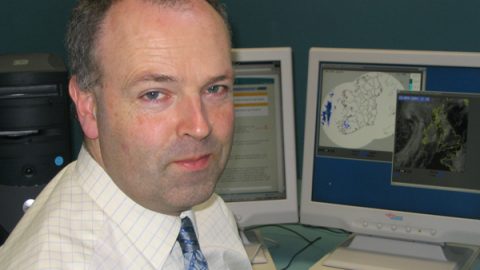
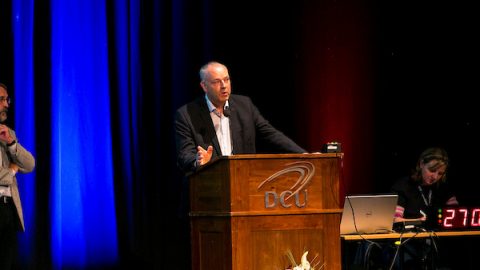
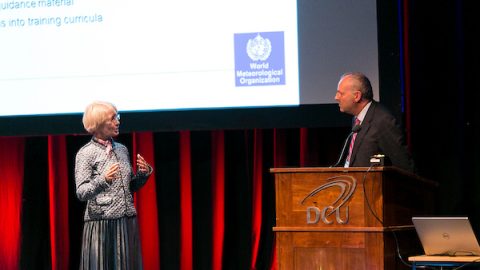
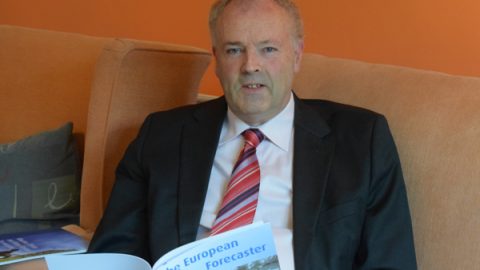
Kommentare sind geschlossen.